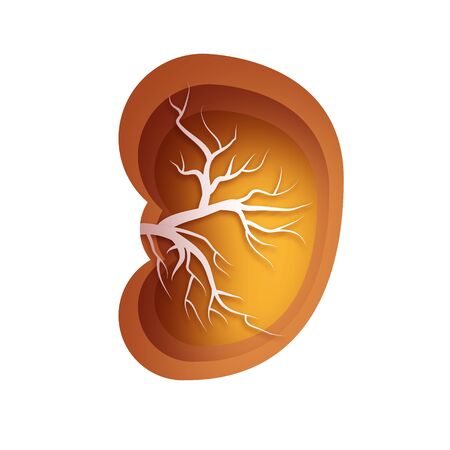Introduction to Cognitive Rehabilitation
Cognitive rehabilitation is a structured and evidence-based approach designed to help individuals regain or improve their cognitive functions following illness, injury, or periods of psychological distress. In the UK, this method has gained prominence within mental health services as practitioners increasingly recognise the intricate relationship between cognitive processes and overall mental wellbeing. At its core, cognitive rehabilitation aims to support individuals in managing challenges such as memory loss, attention difficulties, and problem-solving deficits—issues frequently encountered in mental health conditions like depression, schizophrenia, and anxiety disorders. The principles guiding cognitive rehabilitation are rooted in person-centred care and functional recovery, ensuring interventions are tailored to each individual’s unique experiences and goals. Within the UK’s healthcare landscape, particularly under the NHS framework, cognitive rehabilitation often forms part of multidisciplinary strategies. It works alongside psychological therapies and pharmacological treatments to promote holistic recovery and enable individuals to participate more fully in daily life. As awareness grows about the importance of cognitive health in mental health recovery, cognitive rehabilitation is increasingly recognised as a vital component of comprehensive care pathways across Britain.
2. The Interplay Between Cognitive Function and Mental Health
Mental health and cognitive function are intricately linked, with each influencing the other in profound ways. In the UK, where mental health issues such as depression, anxiety, and psychosis are prevalent, understanding this interplay is crucial for effective recovery strategies. Cognitive processes—such as attention, memory, executive functioning, and information processing—form the foundation of how individuals perceive, interpret, and respond to their environment. When these processes are disrupted by mental health conditions, everyday life can become significantly more challenging.
Addressing cognitive deficits is not just about improving memory or concentration; it is about empowering individuals to regain autonomy and confidence in their daily lives. For example, someone experiencing depression may struggle with decision-making or planning due to impaired executive function. Similarly, those recovering from psychosis may face difficulties with working memory or flexible thinking. If these cognitive challenges go unaddressed, they can hinder engagement in therapy, social integration, and employment opportunities—all of which are key components of holistic recovery within UK communities.
The importance of tackling cognitive deficits becomes evident when considering their impact on recovery outcomes. Research conducted across NHS Trusts highlights that individuals who receive targeted cognitive rehabilitation often show greater improvements in day-to-day functioning compared to those who do not receive such support. This approach aligns well with the UK’s broader emphasis on person-centred care and social inclusion.
Common Cognitive Deficits Associated with Mental Health Conditions
| Mental Health Condition | Typical Cognitive Deficits | Potential Impact on Recovery |
|---|---|---|
| Depression | Poor concentration, impaired memory, slowed information processing | Difficulty adhering to treatment plans, reduced motivation for social activities |
| Anxiety Disorders | Attention bias towards threats, overgeneralisation, rumination | Persistent worry, avoidance behaviours impacting therapy progress |
| Psychosis (e.g., Schizophrenia) | Executive dysfunction, working memory deficits, reduced problem-solving skills | Challenges in independent living and employment readiness |
| Bipolar Disorder | Fluctuating attention span, episodic memory lapses | Difficulties in maintaining routines during mood shifts |
Why Addressing Cognitive Deficits Matters in the UK Context
The NHS Long Term Plan places a strong emphasis on supporting people to live well in their communities. By integrating cognitive rehabilitation into mental health services, clinicians can tailor interventions that address both emotional wellbeing and cognitive skills. This dual focus is particularly important in the UK’s diverse urban and rural settings, where access to resources and social support can vary widely.
Summary Points:
- Cognitive deficits are common across a range of mental health conditions.
- These deficits can act as barriers to full recovery if left unaddressed.
- Cognitive rehabilitation provides practical tools for overcoming these barriers and supporting long-term mental health recovery.
- This approach resonates strongly with the UKs commitment to inclusive, evidence-based care within the NHS framework.
Understanding the dynamic relationship between cognition and mental health is therefore foundational to designing effective support pathways for individuals on their journey to recovery throughout the UK.
![]()
3. Established Cognitive Rehabilitation Approaches in the UK
Cognitive rehabilitation has become a cornerstone of mental health recovery services across the United Kingdom, particularly within NHS settings. Over the years, a range of evidence-based strategies have been developed and refined to address the diverse cognitive challenges faced by individuals recovering from conditions such as depression, anxiety, schizophrenia, and acquired brain injury. These approaches are delivered by multidisciplinary teams—including clinical psychologists, occupational therapists, and specialist nurses—ensuring support is tailored to each person’s unique needs.
Core Strategies Employed Across the NHS
Amongst the most widely used interventions is Cognitive Remediation Therapy (CRT), designed to improve attention, memory, and executive function. CRT is typically delivered through structured activities and computer-based exercises, with growing evidence supporting its use for people living with psychosis or schizophrenia. Another mainstream approach is Compensatory Strategy Training, which helps individuals develop practical methods—such as using diaries or mobile reminders—to manage everyday tasks despite ongoing cognitive difficulties.
Integration with Psychological Therapies
Cognitive rehabilitation in the UK often operates alongside well-established psychological therapies like Cognitive Behavioural Therapy (CBT) and Mindfulness-Based Cognitive Therapy (MBCT). Combining these approaches allows practitioners to address both the emotional and cognitive aspects of mental health recovery, promoting holistic wellbeing. For example, someone struggling with concentration after depression may benefit from both CRT for their memory and CBT for managing negative thought patterns.
Emphasis on Person-Centred Practice
A defining feature of cognitive rehabilitation across UK services is its person-centred ethos. Interventions are not only evidence-based but also adapted to reflect individual goals and cultural backgrounds. NHS teams routinely involve service users in setting achievable objectives, fostering empowerment and collaboration throughout the recovery journey.
In summary, established cognitive rehabilitation practices in the UK are grounded in robust research and real-world clinical experience. By integrating these strategies within broader mental health care pathways, professionals are better equipped to support service users as they regain confidence and independence in their daily lives.
4. Integration into Person-Centred Care Pathways
Within the UK’s mental health landscape, cognitive rehabilitation is increasingly recognised as an essential element of person-centred care pathways. This approach places the individual at the heart of their recovery journey, ensuring that interventions are tailored to personal goals, strengths, and lived experiences. Cognitive rehabilitation is not delivered in isolation; rather, it is woven thoughtfully into multidisciplinary care plans involving psychiatrists, psychologists, occupational therapists, support workers, and—crucially—the service user themselves.
Multidisciplinary Teamwork in Practice
The integration of cognitive rehabilitation into care pathways hinges on effective communication and collaboration among professionals. Regular case meetings allow teams to review progress and update recovery plans based on ongoing assessment and feedback. Each discipline brings a unique perspective: occupational therapists might focus on practical daily living skills, while psychologists address underlying cognitive processes. This synergy ensures that interventions are holistic and relevant to the person’s actual life context.
Example of a Person-Centred Recovery Plan
| Team Member | Role in Cognitive Rehabilitation | Contribution to Recovery Plan |
|---|---|---|
| Occupational Therapist | Assess daily functioning and design strategies for independence | Adapts home or work environments; introduces memory aids |
| Clinical Psychologist | Identify cognitive deficits and deliver targeted interventions | Develops tailored exercises for attention or problem-solving |
| Support Worker | Provide practical assistance and motivation day-to-day | Reinforces strategies outside clinical sessions; monitors mood changes |
| Service User | Active participant in goal-setting and feedback loops | Identifies meaningful goals; reports back on what works in real life |
Benefits of Integrated Approaches in UK Settings
This collaborative method aligns with NHS values of inclusivity and shared decision-making. By embedding cognitive rehabilitation within broader care pathways, service users benefit from continuity of support and clear communication across their care team. Importantly, this model respects individual preferences—whether someone wishes to return to employment, improve social connections, or simply manage daily routines more confidently. In summary, cognitive rehabilitation becomes not just a standalone therapy but a vital thread running through each person’s unique recovery journey in the UK context.
5. Barriers, Opportunities, and Local Innovation
Despite the growing recognition of cognitive rehabilitation’s value in mental health recovery across the UK, several practical challenges persist. A primary barrier is the variation in service availability between urban and rural areas, often influenced by funding limitations and workforce shortages within local NHS trusts. Many service users still face lengthy waiting times or limited access to specially trained professionals, particularly outside major cities. Additionally, there remains a degree of scepticism among some clinicians about the efficacy of cognitive rehabilitation for certain diagnoses, which can hinder broader adoption.
However, these barriers have also spurred a wave of innovation and opportunity at community and system levels. Recent success stories highlight the potential for partnership working between NHS services, local authorities, and voluntary sector organisations. For example, several community mental health teams in Greater Manchester have piloted integrated cognitive rehabilitation programmes that blend digital tools with face-to-face sessions, significantly improving engagement among younger adults recovering from psychosis. In Scotland, peer-led support models have emerged where individuals with lived experience co-deliver cognitive interventions alongside clinical staff, increasing both accessibility and acceptability for diverse populations.
Evolving practices are also evident in the use of technology. Virtual reality platforms and app-based exercises are being trialled to address memory and executive function deficits in home settings. These innovations not only help bridge geographical gaps but also cater to service users’ preferences for flexible, self-directed recovery pathways. Importantly, UK practitioners are increasingly prioritising culturally sensitive adaptations—recognising the need for approaches that reflect Britain’s social diversity and address health inequalities. As a result, cognitive rehabilitation in mental health care is gradually shifting from a specialist intervention to an essential component of holistic recovery planning across the country.
6. Looking Ahead: The Future of Cognitive Rehabilitation in Mental Health Recovery
The field of cognitive rehabilitation within mental health recovery in the UK is evolving at a remarkable pace, driven by ongoing research, digital innovation, and shifting policy priorities. As we look to the future, it is clear that these factors will continue to shape how cognitive rehabilitation is delivered and experienced by individuals seeking support.
Ongoing Research: Building a Robust Evidence Base
Academic and clinical research across the UK remains vital in refining cognitive rehabilitation techniques. Recent studies are increasingly focusing on personalising interventions for diverse populations, including those with co-occurring conditions or from underserved communities. Furthermore, longitudinal research is helping practitioners understand the sustained benefits and limitations of cognitive rehabilitation over time, which will be instrumental in developing more effective, evidence-based protocols tailored to individual recovery journeys.
Digital Innovation: Expanding Access and Engagement
Digital technology is rapidly transforming the landscape of mental health services, and cognitive rehabilitation is no exception. From interactive apps to virtual reality platforms, digital tools are making interventions more accessible, engaging, and adaptable. These innovations offer promising avenues for reaching people in rural or remote areas across the UK who might otherwise face barriers to traditional support. However, ensuring digital inclusivity—addressing issues such as digital literacy and access to devices—remains a key consideration for service providers.
Policy Priorities: Integration and Funding
The UK government and NHS are increasingly recognising the importance of holistic approaches to mental health recovery. Policy shifts towards integrating cognitive rehabilitation into broader care pathways—such as community mental health teams and primary care—signal an encouraging move towards parity of esteem between physical and mental health services. Sustained investment in training for clinicians, funding for innovative pilot programmes, and robust evaluation mechanisms will be essential to maintain momentum in this area.
Collaboration Across Sectors
Looking forward, collaboration between researchers, clinicians, policymakers, and people with lived experience will be critical. Such partnerships can ensure that cognitive rehabilitation strategies remain responsive to real-world needs and are implemented effectively across diverse settings—from NHS trusts to voluntary sector organisations.
A Culture of Continuous Improvement
The future of cognitive rehabilitation in supporting mental health recovery in the UK hinges on a culture of continuous improvement—where feedback loops between practice, research, and policy drive innovation. By embracing both technological advances and person-centred values, there is real potential to enhance outcomes for those navigating the complexities of mental health recovery across Britain.


